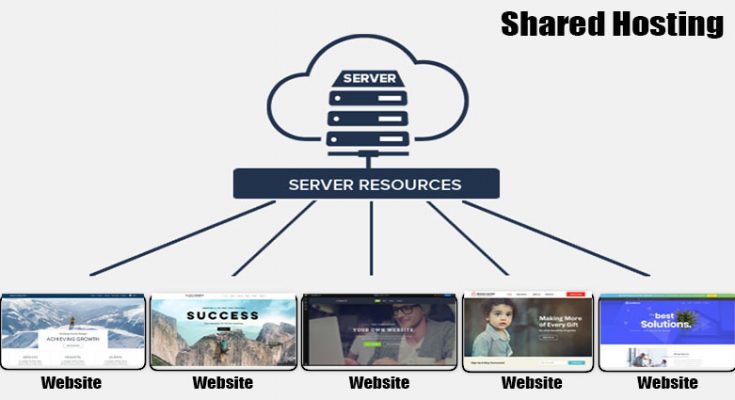Shared hosting is a type of web hosting that allows multiple websites to run on a single server. It is an economical and flexible hosting option. Shared hosting is a great option if your website doesn’t have a large amount of traffic or require a lot of memory. However, if your site grows in popularity, it may require more resources and may not be suited for a shared hosting environment.
Shared hosting is a type of web hosting
Shared hosting is an inexpensive way to host your website. It allows many users to share resources on a single server, keeping costs down. The hosting provider will allocate a certain amount of space and bandwidth to each user. The plan will also include a certain amount of disk space, monthly traffic, email accounts, databases, and FTP accounts. Shared hosting is more flexible than dedicated hosting in many ways, though there are some disadvantages.
Shared web hosting is most common for entry-level and small websites. Shared hosting is very affordable and is great for new businesses and individuals looking to launch a website on a tight budget. A shared server can accommodate hundreds of websites and keeps costs down. Each website will get a certain amount of disk space, RAM, and CPU. In exchange, the web host will share these resources between multiple customers, which makes it more cost-effective for everyone.
It is cost-effective
Cost-effective shared hosting plans are an excellent option for beginners or those who don’t need a lot of computing power. There are several things to consider when choosing a host, including uptime guarantees and how responsive their support teams are. It’s also important to look for features that can enhance the user experience. Generally, most hosts will offer adequate storage, bandwidth, and memory.
Cost-effective shared hosting plans can help you get your website up and running in no time. Many plans are free, and some allow you to customize the design and content on the website. In addition, many include free content management systems, which allow you to create professional-looking sites without any technical knowledge. Most content management systems are also managed online. Remember, however, that a shared hosting account only has a limited amount of resources, so you may experience problems if you have a large website with a lot of concurrent visitors.
It is flexible
Flexible shared hosting is a great option if you’re starting a website for the first time and don’t expect to generate a large amount of traffic. This kind of hosting is flexible and easy to upgrade as your website grows. If you want to build a more advanced site, you can also opt for a more advanced plan with dedicated hosting and more resources.
However, shared hosting has its downsides. The server resources are shared between a number of websites, which can cause lags and spikes in website activity. However, the changes are very rare and are often barely noticeable. Additionally, shared servers are not dedicated to one particular website, so security may be an issue. It’s a good idea to work with a reliable server host to prevent any compromises.
It is secure
The security of shared hosting depends on how many sites share the same server. If one site gets hacked, it could affect the security of every other site. A compromised server can also put customer information at risk. As a result, shared hosting must take extra precautions to protect its customers’ data. Most shared hosting services have a certain level of security. You should make sure to check this, and to find out how your host protects your data. The security of your data depends on the host’s policies. You should choose a company that has an advanced security policy to prevent data breaches. A reputable hosting provider should have a policy against data usage, and the administrator of the server should not be able to access other users’ code or data.


